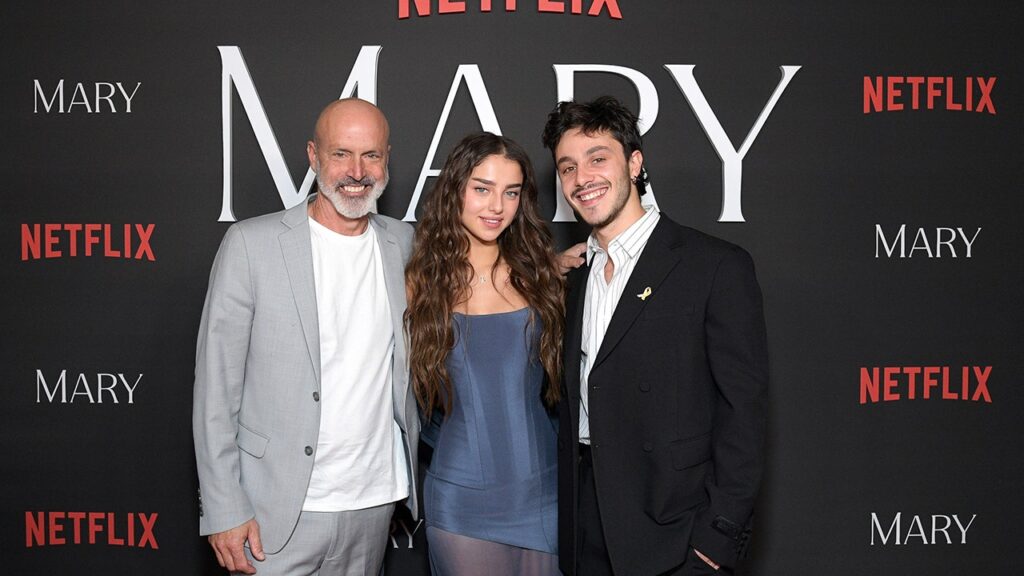Netflix has recently introduced a captivating film titled “Mary,” which explores the life of a significant figure in Christianity known as the Theotokos, or the Blessed Mother. This film, directed by D.J. Caruso, features Noa Cohen in the leading role of Mary and legendary actor Anthony Hopkins portraying King Herod. Following its release on December 6, the movie quickly ascended to the top of Netflix’s charts, sparking public interest and conversation about its central character: Mary.
Mary, the mother of Jesus, holds an extraordinary position in Christian theology and tradition, especially during the Advent and Christmas seasons when her story is celebrated and honored. The film aims to shed light on her life and the Divine mystery surrounding her conception of Jesus Christ. Mary is venerated not only for her maternal role but also for her unique position as one who is seen as full of grace, as stated in Luke 1:28, where the Archangel Gabriel greets her. This moment, known as the Annunciation, marks a pivotal point in Christianity, where Mary is informed that she will bear the Messiah.
In biblical accounts, particularly in the Gospel of Luke, Mary’s acceptance of this monumental task is expressed in her response to Gabriel: “Behold, I am the handmaid of the Lord. Let it be done to me according to your word” (Luke 1:38). This declaration not only underlines her obedience and faith but also signifies her pivotal role in the narrative of salvation history. The phrase “full of grace” implies that Mary was free from original sin, a belief upheld within the Catholic tradition which asserts her Immaculate Conception.
Pope Francis has commented on Mary’s status, explaining that being “full of grace” indicates that Mary is entirely filled with God’s presence, leaving no space for sin. He emphasized the significance of Mary’s purity through the lens of a world often tainted with evil, underscoring that she represents an “evergreen oasis” amidst humanity’s struggles with sin. This unique quality allows her to fully accept God’s will, hence beginning a new chapter in salvation history.
The role of Mary during the Advent season cannot be overstated. Mark Miravalle, a theology professor and expert in Mariology at Ave Maria University, highlights how Mary’s image becomes universally celebrated during this time, from nativity scenes to Christmas cards. He points out that through her human cooperation, Mary contributed to God’s divine plan by giving human nature to Jesus, who is both fully divine and fully human. This cooperation emphasizes God’s respect for human dignity and free will.
Advent is heralded as a time of spiritual preparation for the arrival of Jesus Christ, which Miravalle notes is fittingly marked by recognizing a woman’s role in this divine plan. He articulates that there should be no perceived competition between Jesus and Mary; rather, their relationship exemplifies a profound bond of love and obedience to God’s intentions for humanity’s salvation.
Furthermore, the portrayal of Mary in various forms of art and media during this season conveys an essential message about respect for human dignity, particularly highlighting the special honor afforded to women. As the narrator of this divine story, Mary exemplifies the virtues of faith, obedience, and maternal love.
In conclusion, as “Mary” continues to attract audiences on Netflix, it opens up discussions about her invaluable role in Christian belief and the beauty of her collaboration with God. By celebrating Mary, viewers are invited to reflect on the essence of Advent and the key themes of redemption and hope that she represents in the Christian faith. This film not only illuminates the life of a remarkable woman but also encourages deeper spiritual reflections during this sacred season. For more insights into lifestyle and faith-related topics, readers can visit the Fox News Digital platform.



